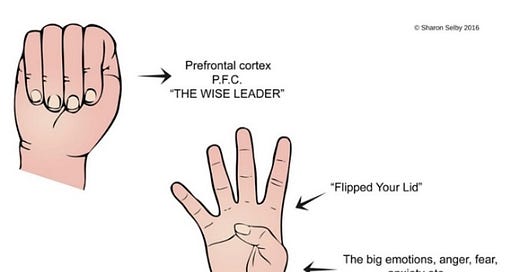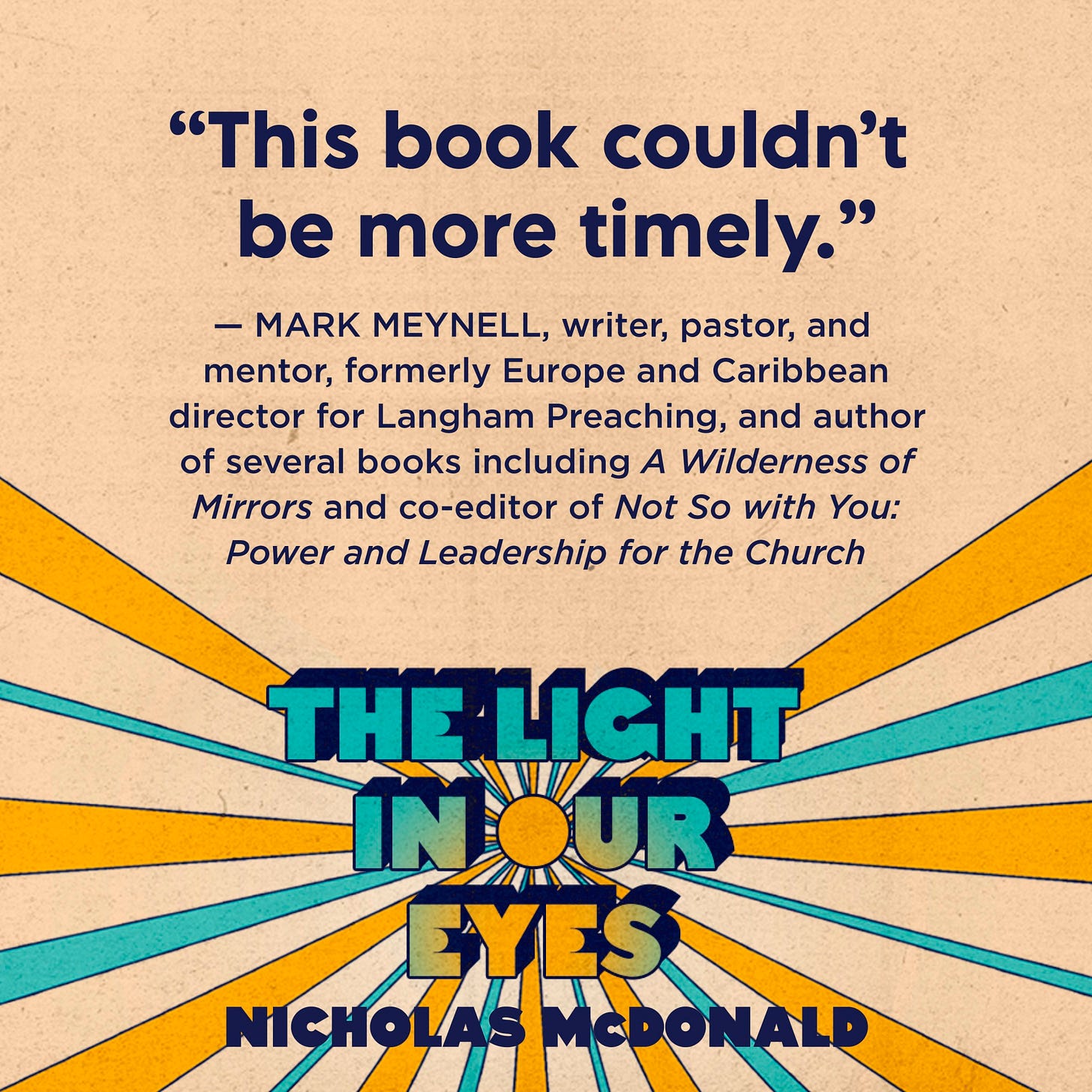The Magic Sentence I Wish Every Christian Would Say to Their Deconstructing Friends
It Really Does Make All the Difference
I know there are lots of debate right now about whether Christians should show “empathy” to people, and I get these. I really do. I’ve been in situations where empathy is a code for: “Don’t tell me what I need to hear. Only what I want to hear.”
On the other hand, I’ve been in situations where someone is trying to share about processing their disillusionment with the church: their pain. Their trauma. Their questions. Rather than meeting that person where they are, I’ve heard (and seen) story after story of we evangelicals saying: “Well, you’re wrong. Here’s a book about why you’re wrong.”
…which is not exactly what someone wounded or disillusioned by the church needs to hear.
And look, I get it. I spent a couple of years being that second guy on a college campus. When students came to me with questions, I answered them. Not a problem, right?
Wrong.
Because my students’ weren’t looking for answers…not at first. They were looking for something else. Each time I spoke with them, I could tell I was missing the mark. It was only after trying (and flopping) with this “Answers-Forward” approach that I finally uncovered a sentence that changed everything.
But first, let me tell you about marriage counseling.
Many years ago, Brenna and I went to some marriage counseling (it’s okay. We have the perfect marriage figured out now.) I will be honest with you. The counselor irritated me. We would bring up an argument, and then…she would ask me how I felt about it. See, these were the kinds of people I was warned about at Worldview Camp: relativists. She didn’t believe in truth. She believed in feelings.
So I’d show up to these counseling sessions as shall-we-say not exactly primed for personal transformation.
Over time, however, something funny happened. Our counselor started to drop some truth bombs about our relationship…which made my claim that she was some loosey-goosy limp-wristed espresso-drinking postmodernist with half a brain feel just a bit …flimsy itself.
And here was just the thing about her, the really annoying thing: she was way more effective at dropping truth bombs than I was. When she said something, I was ready to listen to it. I trusted her. Something about our conversations made me ready for her - sometimes difficult - words to me.
Why?
Here’s what I learned, over time. It’s not that our counselor thought truth was unimportant. It’s just that, being a counselor, she knew how the human brain worked.
Here’s a helpful little illustration:
This is a picture of our brain in two different states (not like Michigan and Indiana but like states of mind. If your brain is in two different States this will probably not be as helpful to you). In the first state, you’re calm. You can think. You can reason. If someone is saying something to you, you’re able to process it.
In the second state, you feel threatened. You have big emotions. And in this state of mind, you are literally unable to think logically.
It wasn’t that our counselor didn’t believe in truth. But she did know when - and how - to tell the truth most effectively, in a simple, two step process:
first, feel this person’s experience. Really feel it, so that they feel safe and fully understood. They feel that you feel it. That’s how much you feel it.
second, give perspective.
So what does all this have to do with reaching our disillusioned, dechurched or deconstructing friends? Well just think about Billy the Deconstructing Barista. If Billy is willing to have a conversation with you about his church experience, he’s probably feeling pretty nervous.
Maybe he’s never been allowed to ask questions, or express doubts.
Maybe he’s never told anyone what happened at that church - yes, the church everyone loves.
Maybe he’s afraid you’ll think he’s not a Christian and maybe he never was one at all.
These are big fears, people.
So I cannot tell you how life-giving it is when Billy the Barista, fearing your judgment, anger, or even worse…a book recommendation attacking their deconstruction process (sheesh), experiences this instead:
You listen with empathy (or compassion, if you want). You try to get inside the shoes of Billy the Barista, until you can say the magic sentence that unlocks everything else: “I understand why you’d feel that way, Billy the Barista. I really do.”
1.b Make sure you really mean this. Billy can tell if you’re just using this as a segue to something else. And take a long pause. Or end the conversation. Or sit with them and try to summarize things and ask, “Do I have this right?” Feel what they feel.
1.c DO NOT skip to step two with a , “but here’s what I think.” Okay. Understood?
1d. I’m serious. This probably takes about a year of time. As my pastor friend Sam Haist says, when working with deconstructing folks he spends most of their first sessions saying, “Man, that’s so hard,” or, “I actually agree with you on that.”
After taking time to think about this person’s experience, this person feels safe. Now they are open to your perspective. Presumably that’s part of why they’re talking to you. So be gentle. But don’t be timid. The vast majority of people who are questioning faith do want some form of guidance. So, now is the time to give it.
This is why in my book, The Light in Our Eyes, I spend the entire first half of the book sharing my own deconstruction story. The pain. The awkwardness. The hatred and anger I felt toward the church. The confusion. And yeah, I’ll be honest: my evangelical friends who’ve read the book have been a bit twitchy about this first half.
But it. is. crucial. It’s crucial. There’s no moving to step two without step one.
But I do move to step two. In the second half of the book, I share my story of finding renewal in the ancient, global, historic gospel of Jesus. And I tell the stories of many others who’ve experienced that as well. I tell those stories to help people imagine a future where their doubts and frustrations don’t lead to dechurching. Instead, they lead to restoration.
Renewal.
A sense of being re-storied by Jesus.
But you can only get to that point with your struggling friend after you can say this one, magic little sentence that changes everything: “I understand why you’d feel that way. I really do.”
Watch as Billy the Barista’s shoulders relax.
His defensiveness subsides.
His heart opens.
That’s the magic sentence I want you to say to your disillusioned friend.
Even if it takes you a year or two of listening to get there.
Are you feeling disillusioned with the American Church, but still want to follow the way of Jesus?






I am not naturally empathetic at all. Jumping to step 3 halfway through step 1 (yep, if I let them finish it was a rare case. Maybe I was eating something) left me with little chance of helping those who I truly loved and cared about, but hadn't learned how to show it.
Learning to validate the experience and feelings of others, even when there was truth needed, and waiting to offer counsel took far too long and I hope your book can help others find that bridge and allow for the Church to become a safe space for people who struggle deeply. Thank you for writing this and for sharing your pain and your story so widely. I appreciate you deeply.